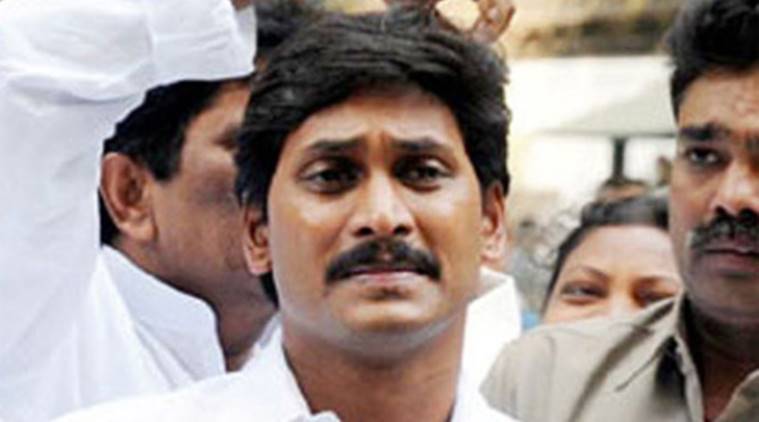Stay updated with the latest - Click here to follow us on Instagram
Under fire, CM Jagan’s shield: Schemes cover nearly 70% of Andhra population
Already, Andhra’s outstanding liabilities, which are estimated to rise 11.5 per cent in 2019-20 to a staggering Rs 3.42 lakh crore (31.6 per cent of GSDP), have prompted state-owned banks to raise concerns about its ability to guarantee repayment.
 Since coming to power, CM Jagan has brought in more than a dozen additional schemes and welfare measures. (File)
Since coming to power, CM Jagan has brought in more than a dozen additional schemes and welfare measures. (File)
Between cancelling work on the new capital in Amaravati, dam projects and power purchase agreements, much of what Andhra Chief Minister YS Jagan Mohan Reddy has done is launch welfare schemes — at least one every week over the last five-plus months.
Since he took oath as Chief Minister on May 30, Jagan has made many promises and announced 29 welfare schemes entailing an outlay of Rs 56,132 crore, roughly a quarter of Andhra’s annual budget.
Already, Andhra’s outstanding liabilities, which are estimated to rise 11.5 per cent in 2019-20 to a staggering Rs 3.42 lakh crore (31.6 per cent of GSDP), have prompted state-owned banks to raise concerns about its ability to guarantee repayment.
The YSRCP government’s first Budget set aside Rs 73,000 crore for nearly 60 schemes under the umbrella of Navaratnalu — the nine welfare schemes that the party promised in its poll manifesto, for women, farmers, senior citizens, and for health and education.
Since coming to power, Jagan has brought in more than a dozen additional schemes and welfare measures, like incentives to Micro Small and Medium Enterprises, interest-free loans to urban self-help groups, and assistance to lawyers. However, the government hasn’t been forthcoming on how it will raise the money needed.
In June, four schemes were launched with a total outlay of Rs 17,604 crore; and in July, three with an outlay of Rs 7,618 crore. September saw five schemes with an outlay of Rs 4,600 crore, and the next month, seven schemes amounting to Rs 14,000 crore. This month, 10 schemes have already been announced with an outlay of Rs 12,310 crore.
The new schemes include Amma Vodi, to give Rs 15,000 to the mother in each BPL family to send her children to school; YSR Arogyasri for health aid; increase in salaries of employees running emergency numbers 108 and 104; the second phase of the Kanti Velugu mass eye-screening programme; and YSR Matsyakara Nestham for payment of Rs 10,000 to each fisherman during the non-fishing season.
The main target of these schemes are BPL families, SC/STs, backward classes, minorities, and socially and economically backward classes, which together comprise more than 3.5 crore of the state’s estimated 5.3 crore population.
Finance Minister B Rajendranath Reddy said they are looking at options to raise funds for the schemes. “We are saving a lot of money from reverse tendering and doing away with the wasteful expenditure of the TDP government,” he said. Despite inheriting a “precarious financial situation” from the TDP government, Jagan was keen on implementing the schemes, he said.
Urban Development Minister Botsa Satyanarayana said they know what they are doing. “The previous government indulged in corruption and wasteful expenditure in Amaravati. We are being financially prudent by not going ahead with the unviable grand plans,” he said.
But the industry is not convinced. Businessmen and political leaders have appealed to Jagan to continue with some of the projects of his predecessor, warning that inconsistencies in policy could hurt Andhra.
Accusing the state government of hurting lakhs of workers by mismanaging the sand issue, former president of AP Chambers of Commerce and Industry Federation G Sambasiva Rao said: “Cancelling a previous policy without any plan in place disrupted everything.”







